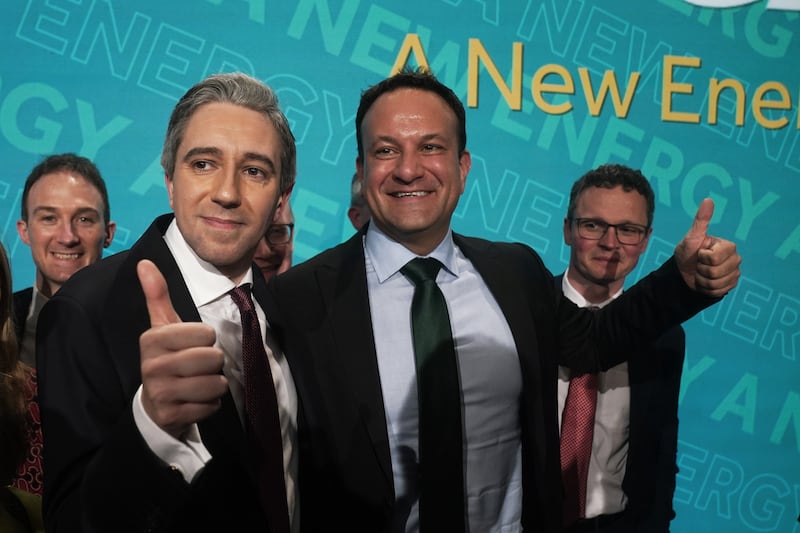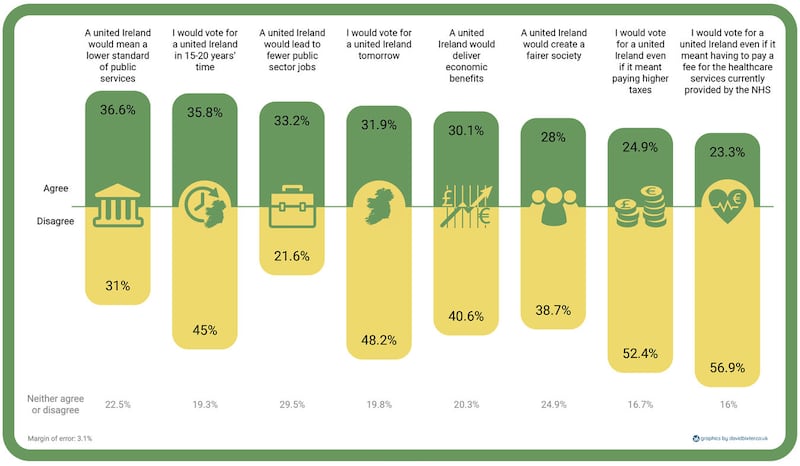There is already the whiff of failure about the new taoiseach – and this is his first day in office. Simon Harris is one of those oleaginous politicians who has risen without trace, an all too common breed in the modern age.
His predecessor wasn’t always firing on all cylinders, but Leo Varadkar got some of the big calls right – not least on Brexit, where he ran rings round the British government. (Not difficult I accept. The Conservatives have never been particularly adept in power, but the Johnson-Truss-Sunak combo has plumbed new depths of incompetence.)
Without question, Brexit – which confirms Britain’s decline and fall – has brought us to a point where Irish reunification is tangible. Ironically, by supporting the most extreme form of Brexit, the DUP single-handedly did more to destroy the union than Sinn Féin, Plaid Cymru and the Scottish National Party put together.
While Varadkar could have done much more to advance planning for the inevitable referendum on reunification, he at least had the political intelligence to realise that unity was going to happen within his lifetime. And his support for it was not in doubt.
Not only is reunification in the interests of the people in the north – of all religious denominations and none – it is also in the national interest of Ireland as a whole.

The Republic has done well since Britain ripped Ireland apart in the 1920s; but it has not done as well as it might. No body can function fully when it is deprived of a limb, and a country is no different.
It is not just the undermining impact of decades of civil strife that have curtailed economic, political and cultural development; but the inability to be able to capitalise on the skills and expertise of almost a quarter of the island’s population.
Reunification – for that is what it is, the putting together of something that was once whole – is and must remain an imperative for any Irish government. Yet, when provided with an opportunity to set down a marker, freshman Harris failed to follow through. Asked about unity, he said: “I would like to see a united Ireland, but that is not where my priority lies right now.”
- TikTok Taoiseach Simon Harris should quickly set out his views on unity and border poll - The Irish News viewOpens in new window
- Analysis: Simon Harris needs to be more than merely ‘Continuity Leo Varadkar’Opens in new window
- Simon Harris has made his position on united Ireland clear – Newton EmersonOpens in new window
Let that sink in for a moment. “Not where my priority lies right now.”
Many in the six counties which make up this gerrymandered excuse for a state will not be shocked, jaded as they have been by successive southern politicians who have failed to live up to the ambitions of Ireland’s founders.
But Harris’s words will give succour to those who are willing to sacrifice the future of their children, and their children’s children, on the rock of ‘No Surrender”. And it will ensure that the necessary planning for a poll and reunification will once again be put on the backburner.

Harris said: “I think the priority has to be on embedding the institutions in the north, supporting the Northern Ireland Executive, using the Shared Island Fund to bring about real practical areas of co-operation.”
Laudable, yes. But we have gone past the point where Ireland can continue to outsource its aspirations for unity to a devolved Assembly and Executive in Stormont. For the past quarter of a century, institutional and political inertia there has denied parity of esteem to all traditions in this place, it has been used to undermine Irish culture and traditions, and it has thwarted the search for justice.
The price we are paying for a putrid union with Britain is more costly than any price to be paid for an Ireland reunited
Nationalists are not the only ones to have suffered from this stunted approach to governance. People from the unionist tradition too have been deprived of their right to a better life by successive generations of political leaders who used economic, social and political self-harm as a weapon of control.
There can be no doubt that a highly-educated and skilled workforce in the north, freed from the shackles of British economic experimentation and mismanagement, would now be having the quality of life enjoyed by their fellow countrymen and women south of the ‘Carson line’.
Whatever the cost – and that is a sterile debate – Ireland reunited will always trump an Ireland divided. The price we are paying for a putrid union with Britain is more costly than any price to be paid for an Ireland reunited. Listen up Mr Harris.








